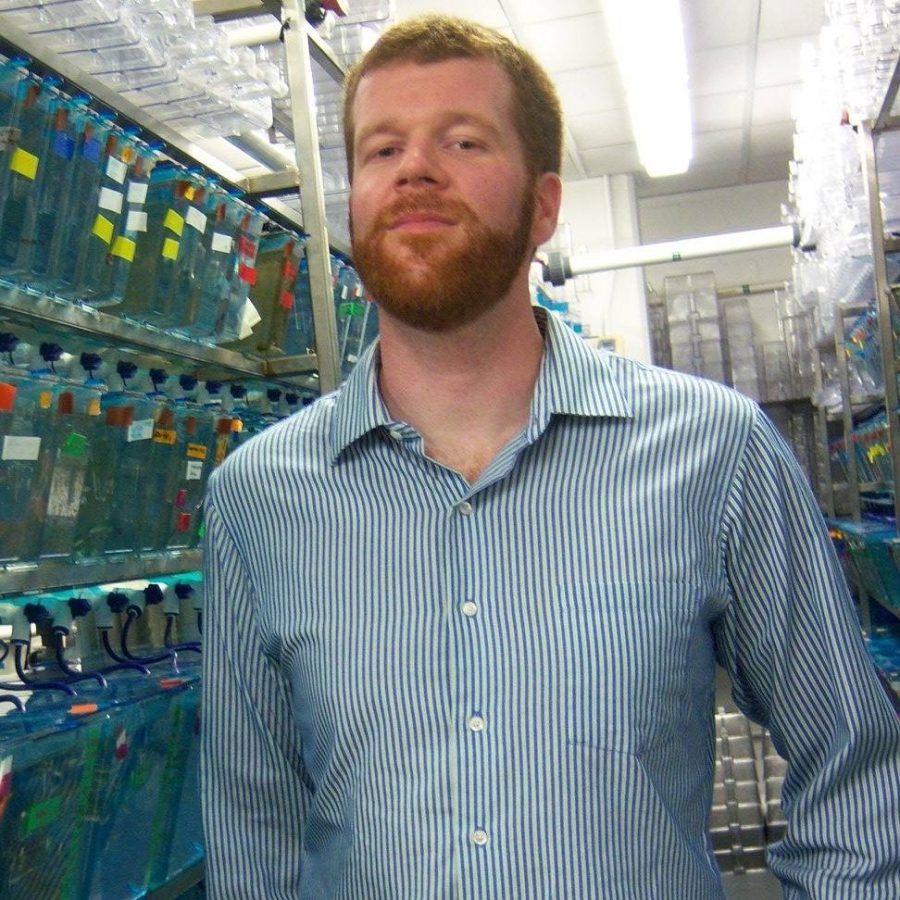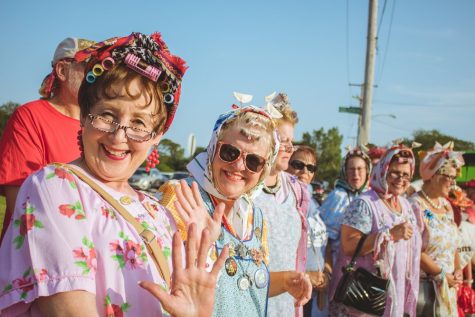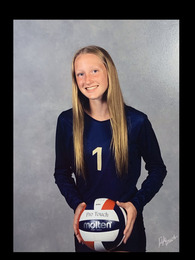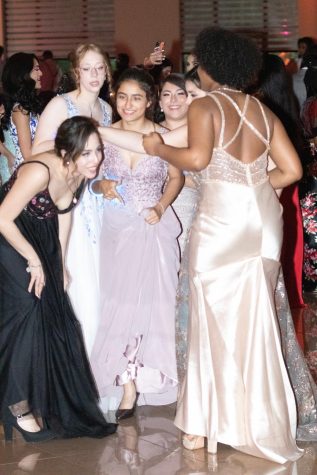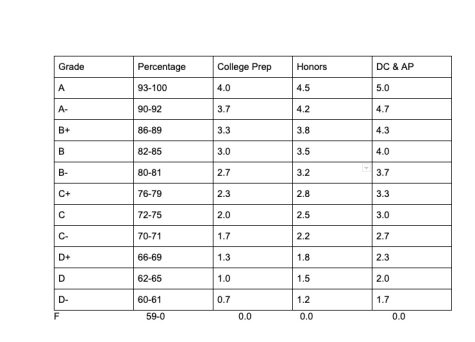2008 Bishop Noll alum makes groundbreaking discovery with DNA research
Thomas Clements genetically modifies zebrafish and teaches at Vanderbilt University.
May 13, 2021
What does a zebrafish and a Bishop Noll alum have in common?
Dr. Thomas Clements is the answer.
Clements is a 2008 BNI graduate who is now a professor at Vanderbilt University in Biological Sciences. His research is centered around genetic engineering and developmental biology. Prior to his success in research and teaching in higher education, he fostered his love for science as a Bishop Noll student.
Clements found his love for science thanks to Mr. Jeff Cochran, a former chemistry teacher at BNI.
“I was always interested in science and math, but my time at BNI really solidified my love of the field,” says Clements. “Mr. Cochran was just so cool, goofy, and he made chemistry fun. He made me realize that scientists can be goofy people with personalities too.”
About 17 years ago, renowned biology teacher, Ms. Becky Dostatni taught at BNI for the first time as a student teacher. In her first biology class was Thomas Clements. She later taught him his junior year in Physics too.
“He was super bright and most importantly had a passion for science,” says Dostatni. “He always had all of the skills necessary for science – curiosity, perseverance, open-mindedness, and skepticism.”
At BNI Clements was also very active in sports, drama, and other extracurricular activities. He played soccer and basketball, but was the most successful in track. Sports were not his only focus though. In drama club, he was able to really succeed and find himself as a person.
“I gained so much confidence in myself through drama and I cannot thank Mrs. [Fredi] Conley enough for setting up an environment like this where self-fulfilling journeys like that are possible,” says Clements.
Clements says that because of former Noll theater teacher Conley, he had the ambition to start his own science improv team down in Nashville called Improv Science Theater 4000.
After graduating BNI as the salutatorian in 2008, Clements attended Purdue University West Lafayette. There, he majored in biochemistry and minored in biology and forensic science.
He graduated from Purdue in 2012 and then moved to Houston, Texas to further his studies at Rice University. He earned his Ph.D. in biochemistry and cell biology, and while in graduate school, Clements became a published scientist.
Clements’ project consisted of genetically modifying the South Asian native zebrafish.
“During my time at Rice, I worked on projects centered on improving CRISPR-Cas9 genetic engineering in the zebrafish model organism and then used this model and tool to study brain development and neural angiogenesis,” says Clements.
Clements’ felt a keen interest in zebrafish because they have a unique ability to naturally repair their heart muscles.
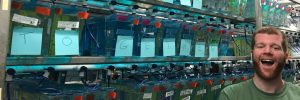
He used a modified form of a popular DNA editing tool to knock out genes in zebrafish. He compared how many have the normal wild type and how many have a type with mutations. It is a hard subject to understand unless you have thoroughly studied the field.
After graduating from Rice University in 2018, Clements went on to teach at Vanderbilt University in Nashville, Tennessee. He is now a senior lecturer in biological sciences.
“In this job, my primary role is to teach courses, but I am still continuing my research interests and have two undergraduate students working full time under me,” says Clements “Currently, I teach Introduction to Biological Sciences, Principles of Genetics, and several Introductory Biology Laboratory Courses.”
When the 2020 pandemic hit, Clements was teaching a discovery based research lab. He and his students agreed that they wanted to challenge themselves to learn everything about COVID-19 that they could. The lab course quickly switched to a literature review course with biweekly presentations based on their research. By the end of semester they gathered everything they had learned and published an article about their findings in the FEBS Journal.
“The students and I then spent about two months after the semester had already ended formatting and editing this paper to fit within the journal’s parameters,” says Clements. “It’s now published as a review article with all of my students listed as co-authors and I couldn’t be more proud of all of them. Now we’re all vaccine advocates and will talk in depth about COVID-19 and potential therapies to anyone who listens to us.”
Clements says that one take away he has from the pandemic is that the general public gets to see scientific processes unfold in real time. They can appreciate all that scientists do for us. He says that it’s exciting to see mRNA vaccines being approved for the first time.
“I’m excited to see where this technology goes in the coming years because mRNA based therapeutics could become very popular,” says Clements. “Especially with so many new people being exposed to this technology, I hope it leads to a wave of young people becoming inspired and pursuing careers in biotechnology and bioengineering.”
It’s evident that Clements’ love for science and technology has led him to immense success. He emphasizes and stresses the idea that anyone can be a scientist. He wants to encourage the next generation of scientists to be creative and open-minded in their researching processes.
“ANYONE CAN BE A SCIENTIST!” exclaims Clements. “You don’t have to fit within a certain stereotype, you don’t have to be at the top of your class, and you don’t even have to necessarily like math! Scientists come in all shapes and sizes. One of the best skills a scientist needs is persistence and willingness to change their opinion when presented with new, credible information.”

